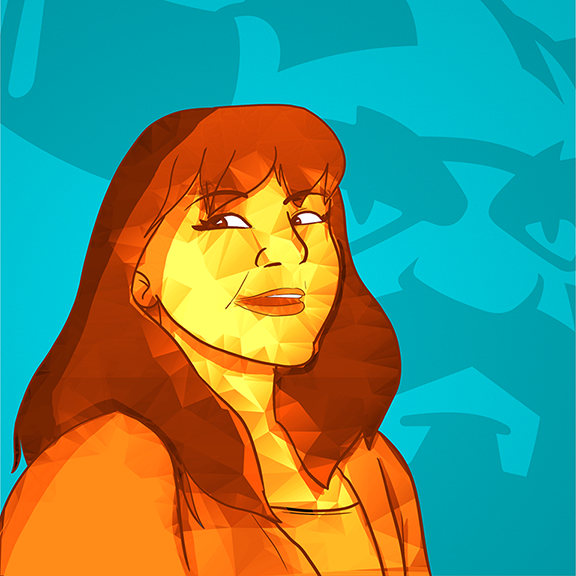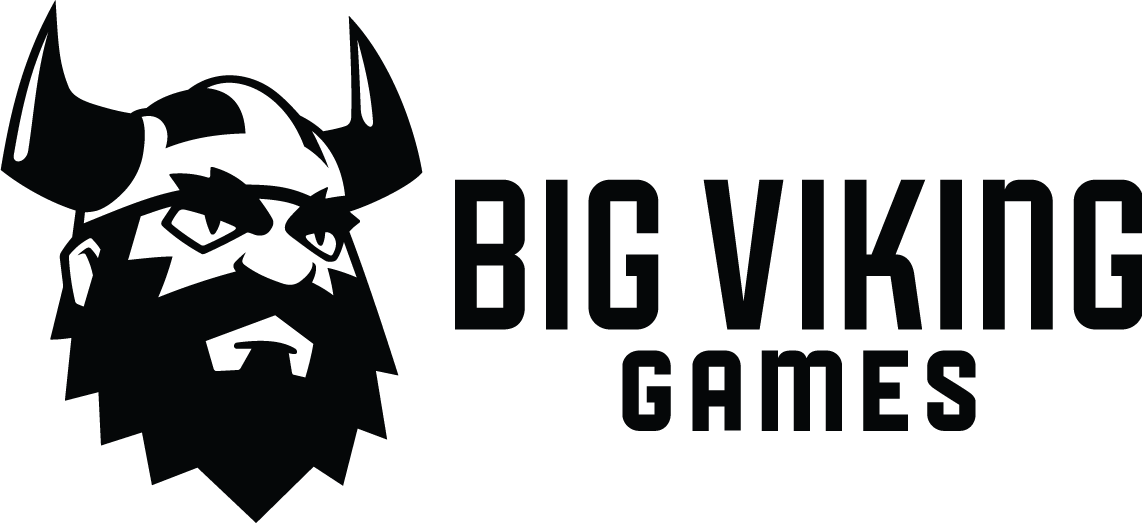Our series of Viking Profiles aims to shed some light on the some of the lesser-known roles in the gaming industry. Today we’re talking with Viking Robyn to learn more about the process behind game production and what, exactly, is produced by a Producer.

What is your role at Big Viking Games, and how long have you been with the company?
Robyn: I was hired to be an Associate Producer (on both YoWorld Mobile and Tiny Tappers for Kongregate), and when one of those games wrapped I was transferred to the other full time. After shipping both, I was promoted to Producer.
What does a Producer do at a game company?
Robyn: One the favourite jokes of my developer friends is “a Producer doesn’t actually produce anything!”, which is hilarious to devs, but less funny to Producers. Producers are responsible for making the hard decisions to keep everything on track and make sure a game ships.
The role varies from company to company. I’ve had it be a catch all, where I, as the Producer, did everything except code or draw, including marketing material, community outreach, and social media. I have even been responsible for video editing!
Thankfully at BVG it is a very defined role: managing the team and working with the Product Manager to deliver a game. The Product Manager handles the creative decisions of what goes into the game, and the Producer decides how we execute on that vision, which involves a lot of planning and scheduling of sprints.
So, though a Producer might not produce anything, they do make sure that everyone else is producing on schedule!
“Producers are responsible for making the hard decisions to keep everything on track and make sure a game ships.”
What does an average day look like for you as a Producer?
Robyn: As we use an Agile-inspired methodology, we start each day with a stand-up meeting with everyone on the team (including artists, developers, QA, and designers), where we review what we accomplished the previous day, and what we’re working on today. If there are any blockers that are getting in the way of production, they’re brought up at this meeting, and it’s my responsibility to solve those problems for the team. I prepare reports for the Head of Production, and check in with other teams and departments to make sure there aren’t any problems with our live game. I also spend some time planning our next sprint, which is a plan for what we want to accomplish in the next two weeks of production. When I have spare time, I use it to play our game.
What inspired you to become a Producer?
Robyn: I feel like another way to describe the Producer role is as the person who helps games to be born. I enjoy helping people who have a very clear vision realize that vision. I like making games happen, and I really enjoy the problem solving and collaboration that the producer role provides, much more so than the idea of creating something that is wholly my own, as a Game Designer might do.
I love helping talented people bring their games to life.
How did you start your career as a Producer?
Robyn: I’ve played games my entire life, and in high school I was inspired to try coding. However, I had a pretty poor experience with my teacher. She would come in every morning and say “goodmorning gentlemen…and Robyn,” making it clear that I was the only woman in the class. She would tell me that I “should design the manuals for the boys’ games because you have a better sense of colour.” These comments weighed on me, and eventually I decided to drop coding.
I studied communications and psychology in university, and even briefly considered a career in law. The prospect of working in the gaming industry still would have appealed to me at that point, but I never thought it would be an attainable career, so I went on to work in Sales at a tech company for a while.
And that was when a QA job popped up at a gaming company. When I considered it, I realized all the reporting I’d done in sales support could be applicable for QA, and that’s how I got my foot in the door. I soon became QA lead and took on numerous additional responsibilities, like technical design and adapting scripts. This led to me becoming an Assistant Producer, then transitioning to Associate Producer, and eventually (after 10 years in the industry) to a full-fledged Producer.
“I love helping talented people bring their games to life.”
Could you tell us how your career has progressed at Big Viking Games?
Robyn: In my short time at the company, I have already been promoted from the role of Associate Producer to Producer. I’m next looking forward to taking my Project Management certification, and I’m glad that BVG offers everyone a personal development budget to make it easier to get this type of certification. I’ve also found some amazing mentorship and support from our Head of Production. She has a lot of really great ideas, and she’s really supportive of my career.
How do you feel about the people who you get the chance to work with at BVG?
Robyn: When I arrived at BVG, I kind of parachuted into an existing team from a previous project. Neither I nor the team knew what to expect of one another, but we’ve since gelled really well as a team and developed a lot of processes that work well for us. We also get along really well. It’s probably the easiest team I’ve ever had the chance to work with.
How did you find out about Big Viking Games and what made you decide to apply?
Robyn: Once I’d gotten into gaming industry, I dragged my brother into the industry as well. That was pretty much the model for a few years, where I would join a different gaming company, and then recommend it to my brother.
However, he beat me to it at BVG. He got into the company first, told me how much he enjoyed working here, and then told me that BVG could really use my skillset and that I should apply.
And here we are.
What is the most challenging part of being a Producer? And what is the most rewarding part?
Robyn: I’d say the biggest challenge is timelines. Game development is a very iterative process. It is rare to get the perfect realization of your vision in the first build. It’s more common to go back to the drawing board to rework your product, cutting certain features or refactoring expectations. And sometimes you need to ask your team to put in extra time in order to hit big milestones. Fortunately that hasn’t been very common for our team—we’ve had to work late maybe 4 days in the 9 months of our development.
The most rewarding part is shipping a game. I remember getting the notification from Apple that our game was approved and going live, and I was so ecstatic that I called the Product Manager, screaming “we did it! We passed! We can launch the game!” Seeing your product go live is definitely one of the most rewarding parts of this job.
Now that you’re in this industry, and you spend your days producing games, have your opinions shifted about games and their value in people’s lives?
Robyn: I always thought that games were valuable, but now—having worked in the industry—it really hits home that games are made by people. Games don’t make themselves. It’s the people behind the games that make all the decisions and get games made.
I think there is a trend in video game journalism to point and laugh at games that are not super polished when they ship. However, you have to remember that there are people who have put two years of their lives into these games, and people make fun of all that hard work because of a few bugs.
Some of my favourite games are Bethesda games, and they ship notoriously buggy. But, as a person in the industry, I now appreciate how much work goes into large game worlds—like the ones found in Bethesda games—and how ambitious those worlds are.
In the context of that ambition, and all the people who laboured to realize it, I find it much more difficult to laugh at poor execution. I realize how heartbreaking it must be for the humans behind those games when something doesn’t go exactly as planned.
Seeing the people behind the games also serves to make games even more amazing when you think about how all these different people had to come together and collaborate to create what you’re playing. There are a number of games where just look at them and think “these people just loved it so much!“ They worked so hard to create all the little touches, and you just appreciate them so much more.
“Games don’t make themselves. It’s the people behind the games that make all the decisions and get games made.”
If someone is wondering how to get into game production, what tips would you share?
Robyn: A lot of people give the advice that you should just get into QA and climb that ladder. While that’s what I did, and it is definitely a viable strategy, I think that QA is underestimated as a specialty, and a good QA person is invaluable.
At the end of the day, a studio like Big Viking Games is looking for people with a passion for the role they’re applying to and a drive to learn and grow with the organization. So long as you have that passion and drive, it’s up to you whether you choose to pursue a more senior role in QA, or you grow your career into other roles.
I’d say that if you’re serious about a career in game production, the best way to get your start is to first finish school and then produce something. Whether you produce that something through a game development program, or at game jams, it is important to create a game of your own, or to help someone else create their game!
When I compare the landscape now to what the industry was like 10 years ago, when I entered gaming, so much has changed. Now there are a lot of possible avenues to demonstrate that you can complete a project, which is super important. You can create games in Twine, in Gamemaker; you can join a game jam to see how games are actually made. These are all opportunities to learn what’s required to make games, and to show that you have the skills required.
If you’re interested in starting a career in the gaming industry as part of our Viking horde, visit the Big Viking Games Careers page to see our current openings. If you have questions of your own about the gaming industry or how to make your start, tweet them to us @bigvikinggames.

